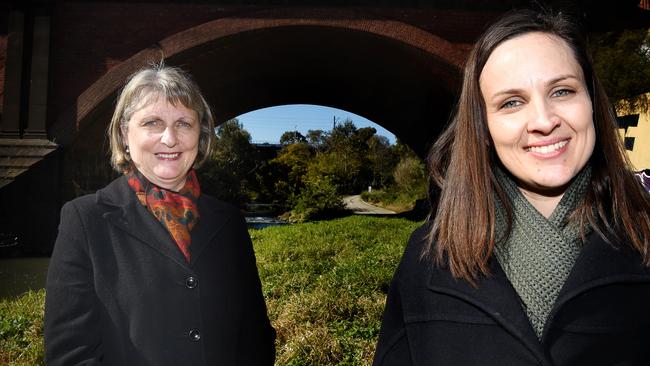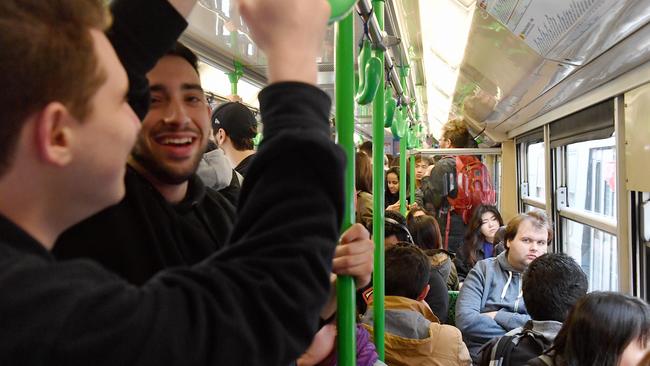Greens ignore democracy in Australia Day switch
IF ever the Greens’ true agenda in running for local government was in doubt, this past week has demonstrated their purpose is far from improving local communities.

Opinion
Don't miss out on the headlines from Opinion. Followed categories will be added to My News.
IF ever the Greens’ true agenda in running for local government was in doubt, this past week has demonstrated their purpose is far from improving local communities.
The Greens in recent years have mounted a concerted effort to win council seats, particularly in inner-suburban areas, not to provide efficient services for ratepayers but to use council as a platform to impose social change and activism.
Of course, these councillors are democratically elected but what is far from democratic is their arbitrary dictates — at both Yarra and now Darebin councils — to jettison Australia Day. These councils have absolutely no mandate to rob their communities of a national day where Australians celebrate what is good and decent about our multicultural country or take a pledge of citizenship.
The City of Yarra polled 281 residents, and conducted a survey of 88 indigenous people, from its population of some 90,000, and the City of Darebin had the audacity to survey 81 of its 147,000 population before banning Australia Day. Not only do these actions ignore the concept of democracy, neither council had any mandate from constituents when they were elected in October. But even more fundamentally, local government — regardless of what councillors’ personal views are — has no business intruding into national and societal issues.
According to the Local Government Act 1989, the function of council is to act in the best interests of the local community; provide services and facilities; maintain community infrastructure; undertake land use planning; collect rates; enforce local laws and oversee peace, order and good government. The Andrews Government needs to review local government legislation to prohibit the use of ratepayer funds for socio-political activism outside of council purview. We see it all the time with climate change junkets and marriage equality advocacy. While the Act says councils need to take into account the “diverse needs” of their communities that does not mean to the detriment of others or the majority.
January 26 marks the 1788 landing of the First Fleet of 11 ships from Great Britain at Sydney Cove.
In modern Australia the date is seen as a chance to reflect on our national values, our diverse community, our aspirations and, importantly, greater success in reconciliation, the need to celebrate indigenous culture and the crucial need to improve health, education and employment outcomes for the first Australians.
While sensitivity to indigenous ancestral history and the violence inflicted following settlement is recognised, after 229 years the emphasis should not be about Europeans in tall ships.
Changing a date does not in itself assist in tackling the urgent crisis in indigenous health, lower life expectancy and substance abuse.
Darebin mayor Kim Le Cerf belittled Australians yesterday, saying if they were better educated they would “feel ashamed to be celebrating on January 26”.
This is from a Greens member who flew to a climate change junket in Mexico in her capacity as “low carbon future” manager at the City of Melbourne and whom Darebin had greenlighted to attend a “low carbon” forum in China.
If Cr Le Cerf wants to lecture and campaign for social change, she should resign immediately and stand at the next state or federal election.
Councils should stick to rates, rubbish and roads.

OUR SARDINE NETWORK
Commuters don’t need to be told the morning and afternoon train and tram trip can feel more like a psych test for claustrophobia.
As detailed in today’s Herald Sun, in the past five years the number of extra public transport trips has skyrocketed by 42 million journeys.
As Melbourne’s population has boomed, the pressure on our public transport networks has grown to test capacity.
Public transport use has risen 7.6 per cent, from 550 million trips in 2011-12 to 592 million trips in 2015-16.
Use of Melbourne’s trains now accounts for 233 million trips and is forecast to top 241 million passengers in 2016-17. The $11 billion Melbourne Metro project won’t be completed by 2026 when it adds an extra 39,000 peak period passengers.
Melbourne’s tram system of 1800 stops is the biggest of its kind in the world, and is working overtime with 192 million boardings in 2011-12 increasing to almost 204 million in 2015-16. The bus network, with almost 123 million trips, has now become an integral adjunct to the public transport system.
But infrastructure spending is only now playing catch-up — a reflection of ad hoc planning and a failure to meet rampant migration with transport upgrades. The public transport and road project mix must be better managed — each is complementary and Victoria needs more of both to break gridlock.
The Andrews Government is rolling out level-crossing removals, with other road and rail projects being targeted. But close watch will be given to meeting time and budget settings. If the botched Swan St Bridge upgrade is a first test, we’ve got reason to be worried.


